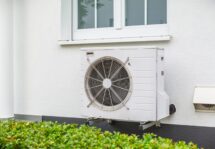Indoor air quality is easy to overlook, but it directly impacts your health and comfort. One major concern is the presence of volatile organic compounds, commonly referred to as VOCs, prevalent in many homes in Moncks Corner and the Tri-County area. Fortunately, it’s possible to reduce your exposure to VOCs and improve the air you breathe.
In this blog, our HVAC experts at Carolina Custom Air explain what VOCs are, why they’re bad for your health, and what you can do about them.
What Are Volatile Organic Compounds?
VOCs are toxic chemicals off-gassed by everyday household products, materials, and activities. Formaldehyde is one of the best-known VOCs, though hundreds of types can be found in residential environments. Because VOCs often emit slowly over time, concentrations can build up indoors, leading to continuous exposure and adverse health effects.
How VOCs Enter Your Home
VOCs come from many sources, some of which may surprise you. Here are some of the most common ways VOCs get into your indoor air:
- Household cleaning products: Many cleaning sprays, disinfectants, and detergents contain VOCs. Even products labeled “green” or “natural” may contain VOCs that linger in the air long after you finish cleaning.
- Paints, stains, and varnishes: These materials emit VOCs as they dry and can continue to release them for weeks or months.
- New furniture and flooring: Pressed wood furniture, carpet, and vinyl flooring often contain adhesives and synthetic materials that off-gas VOCs. The highest levels are released when these items are new, but emissions can continue for years.
- Air fresheners and scented products: Many candles, plug-in air fresheners, and aerosol sprays contain VOCs. While they may create a pleasant scent, they can also contribute to poor indoor air quality.
- Stored fuel and solvents: Items like gasoline, paint thinner, and other chemical-based substances release VOCs even when stored in sealed containers.
Health Effects of VOCs
Prolonged exposure to airborne chemicals can harm your health. Symptom severity depends on the type of VOC, concentration level, and exposure time. Common health issues linked to volatile organic compounds include:
- Eyes, nose, and throat irritation
- Worsened asthma or other chronic lung conditions
- Headaches
- Dizziness
- Nausea
- Fatigue
With prolonged exposure, some VOCs have been linked to more serious health problems, including cancer or liver, kidney, and central nervous system damage.
How To Reduce VOCs in Your Home
Reducing the concentration of VOCs in the air requires a combination of prevention, ventilation, and air purification. Here are some practical steps to improve indoor air quality:
- Choose low-VOC products: Look for paints, adhesives, and cleaning supplies labeled “low-VOC” or “VOC-free.”
- Store chemicals properly: Keep paints, solvents, and cleaning supplies in tightly sealed containers, preferably in a garage or shed, to prevent VOC emissions from accumulating in your living space.
- Avoid air fresheners: Instead of relying on chemical air fresheners, use natural odor absorbers like baking soda and activated charcoal or diffuse essential oils to create a clean scent.
- Improve ventilation: Open windows and run exhaust fans when using VOC-emitting products. Consider a whole-home ventilation system to continuously introduce fresh air and dilute indoor pollutants.
- Use an air purifier: High-quality air purifiers remove VOCs from your home. Portable activated carbon filters and whole-home air purifiers are two effective solutions.
- Maintain your HVAC system: A well-maintained heating and cooling system with a high-efficiency filter or purifier reduces airborne pollutants like VOCs. Regularly change the filter and schedule preventative maintenance to ensure your system effectively removes contaminants from the air.
Schedule Air Quality Services with Our Team
At Coastal Air Solutions, we know how vital clean indoor air is for your health and comfort. We have over 20 years of experience helping homeowners in Moncks Corner and the Tri-County area improve indoor air quality with reliable HVAC solutions. Our NATE-certified comfort advisors can assess your home’s air quality needs and recommend the best solutions to reduce VOC exposure.
Contact us to learn more about our air quality services and start breathing easier at home.




